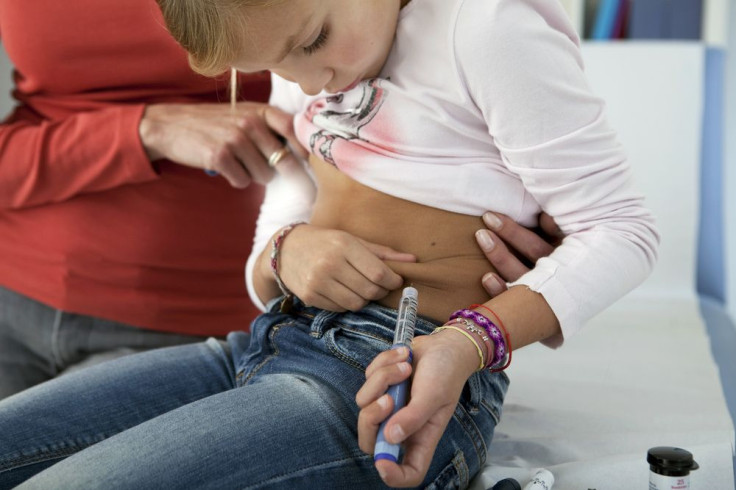Type 1 Diabetes Successfully Reversed With Antibody Therapy; Could There Soon Be A Cure?

Researchers have identified an antibody that can reverse the onset of type 1 diabetes in mice models, even after they begin showing signs of it. Now, researchers are trying to determine how to develop the therapy into a successful cure for type 1 diabetes in humans.
The study, led by Dr. William Ridgway of the University of Cincinnati, was presented on Saturday at the American Diabetes Association's 74th Scientific Sessions in San Francisco, according to a press release.
Type 1 diabetes, which is also known as juvenile diabetes, usually affects children and young adults. It's caused by the body's inability to produce insulin, a hormone needed to break down sugars and starches and transform them into energy. The body’s inability to produce insulin arises from an autoimmune response to insulin-producing beta cells in the pancreas. Typical symptoms include frequent urination, increased thirst, and severe weight loss, in spite of regular diets.
The exact cause of type 1 diabetes is unknown, but genetics and exposure to certain viruses are thought to be contributing factors. Still, it's the rarer form of diabetes, with only five percent of people having the chronic condition, which requires continuous administration of insulin. In certain cases, lack of proper care may lead to severe complications like heart disease, stroke, and kidney failure.
It is believed that the incidence of type 1 diabetes, and autoimmune diseases in general, have increased in the amount of cases due to under-stimulation of innate immune systems, which trigger autoimmunity in children and young adults. Unlike type 2 diabetes, in which a a person is unable to respond to insulin, type 1 diabetes occurs when the body’s T-cells destroy the insulin-producing beta cells every time new beta cells are formed, thus making it a life-long condition.
Previous research on non-obese diabetic mice models showed defects in innate immune cells, and that TLR4, a toll-like receptor, plays a protective role in preventing type 1 diabetes. In the new research, Ridgway and his team used an agonistic monoclonal antibody, UT18, which can combine with TLR4, to boost its activity and reverse the onset of diabetes in a large number of newly diabetic non-obese mice.
"We have shown that by using an antibody to stimulate a specific molecule in the innate immune system, we can reverse — with a high rate of success — new onset diabetes in mice that have already developed the symptoms of diabetes," Ridgway said in the release. "The cause of this reversal is a preservation of the endocrine pancreatic beta cells that produce insulin. These cells are preserved from the autoimmune attack, which is the hallmark of Type 1 diabetes."
The team's success with reversing the condition in mice really depended on treating it during its early stages, as the time frame for developing full-blown diabetes in mice is quite short. Though the time frame may be a little longer in humans, it is still relatively small and needs to be tackled quickly.
Ridgeway’s method for combating diabetes succeeds where several others have failed because his method did not directly target the T-cells. "We are targeting a different part of the immune system," he said. "There are two arms of the immune system. One is called the adaptive immune system and the other is the innate immune system. Basically the T-cells and B-cells are in your adaptive immune system and they respond to many different antigens. The innate system tends to have a stereotypical response. We are targeting a receptor that is found mostly on the innate immune cells, such as dendritic cells.
"This same molecular TLR4 pathway operates in humans in many similar ways; though there are some differences, it is possible this new pathway of targeting the immune system could be tested in humans," said Ridgway. The therapy seems to be effective too, as one agonistic anti-TLR4 agent has already been approved by the Food and Drug Administration, and efforts to develop more are underway.
Source: Ridgway W, Ridgway A, Brown M. At The American Diabetes Association's 74th Scientific Sessions. 2014.



























